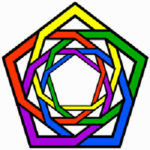It has been established that the brain hormones respond to neural or sensory stimuli. They are not separate from mind state. It has also been proven that the brain cannot tell the difference between the real and the vividly imagined. Your imagination moves your feelings. You imagine a fear, and you do react to it. The sections of the brain are even localized differently. The imagination or visual processing center is in the hind brain, near the mammalian cortex or emotional brain. Thinking is way up in the forebrain, and under stress the r-complex and mammal brain override the cerebral cortex.
Spiritual experiences in human beings involves decreased activity in the right parietal lobe of the human brain? Yes, because the thinking brain can navigate the lower levels, thus we can foster what nature gave us. Develop it and bring it to places that it might not ever go if we ignored it all together. Many spiritual practices have traits that induce that very function shift. Repetitive prayer and chant, singing, rhythmic dancing and drumming. Our much vaunted cerebral functions are actually quite small compared to the others, and the function of memory has shown itself to have many factors and not necessarily be isolated to the brain itself. Remember the last time you tasted grapefruit? If you let that surface, your tongue would show a very physical reaction. We can do very little by just thinking about it. We all know the “super-thinker” types. How much do obsessive thinkers do? If they do a lot, how much do they actually get done and completed?
Human beings have three brains in a sense? Yes, that with insight can function as one brain, and the cardiac nerve plexus is 99% as complex as the brain. The enteric nerve plexus or stomach brain is almost as complex as that. So 5 brains?
They do not function as one on the spiritual levels? Not normally. The most primitive of our brains is the “reptilian brain” with a survival focus. The only thing a jellyfish has resembling the r-complex is an enteric nerve plexus. That even its eyespots plug into. Then there is the mammalian brain and the neocortex. The cardiac nerve plexus becomes more complex, and as the organism developed more advanced coping strategies these “reactions” had to be encoded. This is the structure the mystics called the chakras. As you focus your awareness in chakra meditation you can induce reactions in the centers and synchronized bridging. When triggered, the imagination has that power of override. Your cerebral function is not given priority over that image processing function.
Researchers such as Dr. Andrew Newberg conducted MRI scans of meditating Buddhist monks and Catholic nuns engaging in contemplative prayer. Activity is associated with increased activity in the frontal lobe, combined with decreased activity in another part of the brain, the parietal lobe. Yes, which establishes that we do have the ability to utililize and deliberately target I daresay any function of the human mind. The meditating monks are in an inactive state. They would not remain in that state mentally as they return to “chopping wood and carrying water”. You can “trick” the instinctive mind, by utilizing the power of imagination actively. This is why they use koans, to place a check on imaginative processes.
Could you elaborate on how the koans impact the imagination? I thought of them as impacting thought more? You will affect all other functions. Thought is actually driven by “subconscious” impulse. It tends to be reactive so this is why the koans are so vivid. They have to be imagined to shut down that constant dialogue between me and I. ‘I’ would be the thinking mind.
Your thoughts are welcome. Be well friends.
Travis Saunders
Dragon Intuitive
~science,mysticism,spirituality~


